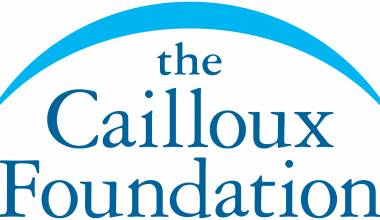If you are a student from Africa or a foreign student who wishes to study in Africa? The University of Nairobi is the right university for you to study for an undergraduate or master’s degree in Africa.
So, we’ll show you the University of Nairobi rankings, admission, tuition fees, courses, and scholarships to help convince you to get a degree at this prestigious African University.
Table of contents
- About the University of Nairobi
- University of Nairobi Tuition Fees:
- University of Nairobi Ranking
- University of Nairobi Faculties & Courses
- University Of Nairobi Admission Procedure
- University of Nairobi Address
- The University of Nairobi Admission Letters
- The University of Nairobi Multimedia Portal
- The School’s Contacts
- University Of Nairobi Library
- Notable Alumni
- WE ALSO RECOMMEND
About the University of Nairobi
The University of Nairobi is a home for African Education, One of the oldest Universities in the Home of East Africa, The School has great Students and Alumni. This post is designed to give you full details on the University of Nairobi Admission, Tuition Fees, Scholarships, Courses, and Ranking.
The University of Nairobi (UoN) is a collegiate public research university. It is one of the largest universities in Kenya.
The University of Nairobi was established as an educational institution dates in 1956, but became an independent university in 1970.
The University of Nairobi was created from the University of East Africa this year. The university motto states, In Unity and Work. The University of Nairobi has an undergraduate population of 49,488 and a postgraduate population of 12,424.
The university has one urban campus and has academic affiliations with ACU. The University of Nairobi launched a self-funded enrollment policy(also called ‘module 2’) in 2011 to cope with the rising demand for higher education in Kenya.
University of Nairobi Tuition Fees:
The University of Nairobi Tuition fees are dependent on the Level or Programme carried out by any Student. These fees can also be affected based on Sponsorships. Students on Scholarships pay less than what other Students pay. Generally, the University of Nairobi Fees is estimated to be 176,460 KES.
For detailed information. Download the Pdf of Tuition Fee Structure of the University of Nairobi Here
Before I proceed here are the World Scholarship Forum’s most popular scholarships. you too can benefit from this list of opportunity as it cut across all nationality.
- 2024 Fully Funded Scholarships
- Full Commonwealth Scholarships
- Erasmus Mundus Scholarships for All Countries 2024
- Scholarships For Developing Countries 2024
- DAAD SCHOLARSHIPS FOR ALL STUDENTS 2024
University of Nairobi Ranking
The University of Nairobi tops the chart in Kenya’s university ranking. It is ranked the 7th in Africa and 1698th in the world according to Webometrics Ranking of World Universities. In 2017, Times Higher Education ranked the University of Nairobi within the 801-1000 band globally.
University of Nairobi Faculties & Courses
The University of Nairobi has six colleges, which are headed by individual principals. These colleges are College of Architecture and Engineering, College of Health Sciences, College of Biological and Physical Sciences, College of Humanities and Social Sciences, College of Agriculture and Veterinary Sciences, and College of Education and External Studies.
Some of the Faculties/schools/centers/institutes stationed in the university of Nairobi include:
- African Women’s Studies Centre,
- Center for Sustainable Dryland Ecosystems and Societies,
- Center of Open and Distance Learning,
- Centre For Biotechnology & Bioinformatics,
- Centre for Hiv Prevention And Research,
- Centre for Urban Innovations,
- Education For Change,
- Faculty of Agriculture,
- Faculty of Arts,
- Faculty of Veterinary Medicine,
- Institute for Climate Change and Adaptation],
- Institute For Development Studies,
- Institute of Anthropology,
- Gender & African Studies,
- Institute of Diplomacy and International Studies,
- Institute of Nuclear Science & Technology,
- Institute of Tropical & Infectious Diseases,
- Kenya Science Campus,
- Kisumu Campus,
- Mombasa Campus,
- Open, Distance and eLearning Centre,
- Physical Sciences,
- Population Studies And Research Institute,
- School of Arts and Design,
- School of Biological Sciences,
- School of Business,
- School of Computing and Informatics,
- School of Continuing and Distance Education,
- School of Dental Sciences,
- School of Economics,
- School of Education,
- School of Engineering,
- School of Journalism,
- School of Law,
- School of Mathematics,
- School of Medicine,
- School of Nursing,
- School of Pharmacy,
- School of Physical Science,
- School of Public Health,
- School of the Built Environment,
- The Wangari Maathai Institute for Peace and Environmental Studies
Some departmental programs offered in the University of Nairobi include:
- African Clothing and Footwear Research Network (ACFRN),
- African Women’s Studies Centre,
- Agricultural Economics,
- Animal Production,
- Arabic,
- Architecture,
- Biochemistry,
- Business Administration,
- Chemistry Department,
- Civil and Construction Engineering,
- Clinical Medicine and Therapeutics,
- Clinical Studies,
- Commercial Law,
- Communication Skills and Studies,
- Confucius, Conservative and Prosthetic Dentistry
- Diagnostic Imaging & Radiation Medicine,
- Distance Studies,
- Education Administration and Planning,
- Education Communication and Technology,
- Education Studies, Educational Foundations,
- Electrical and Information Engineering,
- Environmental and Biosystems Engineering,
- Ethics and Research Committee,
- Extra-Mural Studies,
- Finance & Accounting,
- Food Science,
- Nutrition and Technology,
- French,
- Geography,
- Geology,
- Geospatial and Space Technology,
- History,
- Human Anatomy,
- Human Pathology,
- ICT,
- Information Science,
- Kiswahili,
- Korean Studies,
- Land Resource Management & Agricultural Technology,
- Linguistics,
- Literature,
- Management Science,
- Mechanical and Manufacturing Engineering,
- Medical Microbiology,
- Medical Physiology,
- Meteorology,
- Obstetrics & Gynaecology,
- Ophthalmology,
- Orthopedic Surgery,
- Pediatrics/Dentistry and Orthodontics,
- Pediatrics,
- Periodontology/Community and Preventive Dentistry,
- Pharmaceutical Chemistry,
- Pharmaceutics and Pharmacy Practice,
- Pharmacology and Pharmacognosy,
- Philosophy,
- Physical Education and Sports,
- Physics,
- Plant Science and Crop Protection,
- Political Science,
- Private Law,
- Psychiatry,
- Psychology,
- Public Health Pharmacology & Tox,
- Public Law,
- Real Estate and Construction Management,
- Sociology,
- Surgery,
- Oral Medicine/Pathology,
- Oral/Maxillofacial Radiology,
- Translation,
- Urban And Regional Planning,
- Vet Farm,
- Vet. Anatomy And Physiology,
- Veterinary Pathology,
- Microbiology & Parasitology.
University Of Nairobi Admission Procedure
Admission to study any program at the University of Nairobi is done according to well laid down procedures. The admission options which are available to prospective students are as follows:-
The Undergraduate Module I Students (Sponsored by the Kenyan Government):
This is done through the Kenya Universities and Colleges Central Placement Service (KUCCPS). Formerly known as the national Joint Admission Board (JAB), a board that in charge of student admission for all public universities in Kenya.
The Undergraduate Module II (SELF Sponsored) Students:
Owing to the fact that the government sponsorship can only cater for very few qualifying candidates, the university gives an option for self sponsorship. In this option, admission will be done internally at the university. To apply for an undergraduate program as a self-sponsored student, applicants can obtain an application form from the UNES offices upon payment of an application fee.
Postgraduate Students:
Admission to any postgraduate program at the university is handled by the Board of Postgraduate Studies (BPS) in close consultancy with the relevant school or faculty. In order to apply for postgraduate admission, kindly access the application link at application.uonbi .ac.ke. And download the manual guide available by clicking on the Online Student Application Manual. Application forms can also be collected from the BPS/UNES upon payment of application fee.
The University of Nairobi has three intakes in an Academic year, with the main intake is organized between September/October for all the courses.
Between December/January for Bachelor of Education(Arts), Bachelor of Arts, Bachelor of Commerce, Bachelor of Hospitality Management, Bachelor of Travel and Tourism and the final batch is taken between April/May for Bachelor of Arts, Bachelor of Education(Arts), Bachelor of Education Early Childhood, Bachelor of Commerce, Bachelor of Economics, Bachelor of Economics and Statistics, Bachelor of Journalism and Media Studies, Bachelor of Art Broadcast Production, Bachelor of Hospitality Management, Bachelor of Travel and Tourism, Bachelor of Arts Broadcast Production and all Diploma and Certificate courses
University of Nairobi Address
From World Map, the University of Nairobi is in Kenya East Africa.
P.O.Box 30197, GPO, Nairobi, Kenya
Tel: (+254-20) 3318262/ (+254-020) 2429997
Fax: (+254-20) 245566
Website: www.uonbi.ac.ke
The University of Nairobi Admission Letters
Candidates who have been admitted to the University of Nairobi (UON) in the 2018/2018 session may now download their admission letters from the University of Nairobi student portal.
The University of Nairobi (UoN) Admission Letter is an official document indicating that applicants have been offered provisional admission into a degree program.
The University of Nairobi Admission Letter contains information about the faculty/school/college of study, department/degree of study and the duration of the course. But, before you proceed to Download your University of Nairobi (UoN) Admission Letter, it’s recommended to check your KUCCPS admission status on the university’s portal.
After confirming your UoN Admission Status, you can then proceed to the University of Nairobi Admission Portal: http://www.uonbi.ac.ke/admission to Download your Admission letter.
How to downland the University of Nairobi Admission Letter
Log on to the University of Nairobi Admission Portal via http://www.uonbi.ac.ke/admission. Then log in with your Application Details, your username, and password.
The University of Nairobi Multimedia Portal
The University of Nairobi Multimedia Portal provides learners with interactive self-learning materials. With instructor lead lectures online, a unique collection of on-demand course content.
How to register for a course unit in the University of Nairobi (UON) Multimedia Portal
Log on to the portal website on http://learning.uonbi.ac.ke and log in using the student portal username and password. Enroll for a course and select your course category ie PhD (Doctorate students), Graduate (Postgraduate Students), or Undergraduate (Bachelors and Diplomas). Select your academic program and register for course Units under your academic programs by selecting the icon next to the course title (a student must register for each course unit)
How to Accessing Course Materials in University Of Nairobi (UON) Multimedia Portal
Login to your profile, select a course and document to access handouts. Select Assignment to check or upload assignments. Select a forum to discuss a given topic online with classmates or group members. Select chat to have a real-time discussion on a given topic with other students online.
The School’s Contacts
Here is the Official Phone line and University Email of the University of Nairobi School. Email: lst@uonbi.ac.ke Phone: 0792085552 or 0716617763
University Of Nairobi Library
One of the World resource Library is located at the University of Nairobi. The Jomo Kenyatta Memorial Library is a center for world research. It has played host to many International Discoveries and inventions.
The Jomo Kenyatta Memorial Library (JKML) is located at the University of Nairobi’s main campus in Kenya.
Jomo Kenyatta Memorial Library (JKML) s a magnificent library, built-in 1980. It caters to both colleges of humanities/social sciences and the college of architecture/engineering in Kenya.
The Jomo Kenyatta Memorial Library (JKML) has a seating capacity of almost 2,500 students at a time. The Jomo Kenyatta Memorial Library has an objective to be the most preferred information center in Kenya and the world at large.
The services rendered at the Jomo Kenyatta Memorial Library to both the students and members of the public include reading, reference, and research materials.
The Jomo Kenyatta Memorial Library provides reading facilities, lends books to the University of Nairobi library, Internet access services in the library, bureau services such as photocopy and printing services, periodicals and newspaper provision to University of Nairobi students.
The library also houses the University of Nairobi administration offices in Kenya, where central services such as acquisitions, cataloging, co-coordinating unit, the union catalogs, the bindery and archiving of books are done.
Students who need the read-only service in the Jomo Kenyatta Memorial Library are charged a daily membership fee of Ksh 100 and a monthly membership fee of Ksh 500.
The external borrower charges at Jomo Kenyatta Memorial Library payKsh 500 plus a refundable deposit of Ksh 3000.
Notable Alumni
These Alumni have had one or two influences on the world today based on the skills acquired from the walls of the Nairobi University. Some notable alumnus of the University of Nairobi are:
- Stellah Wairimu Bosire-Otieno
Stellah Wairimu Bosire-Otieno is a Kenyan physician and corporate executive. She currently serves as the executive director of the Kenya Medical Association (KMA).In the Business Daily Africa magazine named among the “Top 40 Women Under 40 in Kenya”, 2017.
- Ali Rasso Dido
Ali Rasso Dido, born on the 23rd of October 1961 is a Kenyan politician. He has been a United Republican Party member of the National Assembly for Saku since March 2013.
- Philo Ikonya
Philo Ikonya is a writer, journalist and human rights, activist. Her articles and books are often tailored around the current political situation in Kenya. She was the president of Kenya’s branch of PEN, an international association of writers. Ikonya has published books on poetry and a novel; Kenya, Will You Marry Me? Ikonya attended the University of Nairobi, where she earned a master’s degree in literature.
- Jacob Kaimenyi
Jacob Kaimenyi, born on the 10th of July 1952 is a Kenyan dentist. He was nominated by President Uhuru Kenyatta as Cabinet Secretary for Education on 25th April 2013. He had his BDS and PhD programs at the University of Nairobi. He also lectured in the university as a professor from 1998 to 2013.
- Michael Kamau
Michael Kamau, born in 1958 is a Kenyan civil servant. He was nominated by President Uhuru Kenyatta as Cabinet Secretary for Transport and Infrastructure on 25th April 2013 and was suspended from the Cabinet on 28th March 2015 on allegations of corruption.
- Felix Kipatarus Koskei
Felix Kipatarus Koskei, born in 1964 was nominated by President Uhuru Kenyatta to be the Cabinet Secretary for Agriculture, Livestock and Fisheries on 25th April 2013.
- Joseph Jama Ole Lenku
Joseph Jama Ole Lenku, born on the 20th of October 1970 is a Kenyan politician. He was Cabinet Secretary for Interior and Coordination of National Government from 2013 to 2014. Lenku is currently serving as the second Governor of Kajiado county
- William Samoei arap Ruto
William Samoei arap Ruto, born on the 21st of December 1966 is a Kenyan politician. He has been the Deputy President of Kenya since 2013.
- Wangari Maathai
Wangari Muta Maathai, born on the 1st of April 1940 was a renowned Kenyan environmental activist and Nobel laureate. Maathai founded the Green Belt Movement in 1977, a non-governmental organization focused on the planting of trees, environmental conservation, and women’s rights.
In 1984, she was awarded the Right Livelihood Award, and in 2004, she became the first African woman to receive the Nobel Peace Prize for “her contribution to sustainable development, democracy, and peace.” She was an Honorary Councillor of the World Future Council.
Maathai was an elected member of Parliament and served as assistant minister for Environment and Natural resources during the government of President Mwai Kibaki between January 2003 and November 2005.
- James Wainaina Macharia
James Wainaina Macharia, born in 1959 is a Kenyan accountant. He was nominated by President Uhuru Kenyatta as Cabinet Secretary for Health on the 23rd of April 2013.
- Fred Matiang’i
Fred Okengo Matiang’i is a Kenyan cabinet secretary. He served as the acting Cabinet Secretary for the Ministry of Internal Security and Coordination of National Government and the Cabinet Secretary for Education, Science, and Technology. He took up the full position of cabinet secretary for Internal Security and Coordination of National Government owing to his appointment by President Uhuru Kenyatta in January 2018.
- Adan Mohammed
Adan Abdulla Mohammed is a prominent banker and Kenyan and Somali decent entrepreneur. He served as the Managing Director of Barclays Bank in East and West Africa. In 2013, he was sworn in as the Cabinet Secretary for the Industrialization of Kenya
- Wycliffe Musalia Mudavadi
Wycliffe Musalia Mudavadi, born on the 21st of September 1960 is a Kenyan politician. He served as the seventh Vice President of Kenya in 2002 and as the Deputy Prime Minister from 2008 to 2012 when he officially resigned to join the presidential race. He is the current Party Leader of Amani National Congress (ANC).
- Sylvia Mulinge
Sylvia Wairimu Mulinge is a Kenyan businesswoman and corporate executive. she was the Director of the Consumer Business Unit at Safaricom, the largest telecommunications company in Kenya. She is currently serving as the Chief Executive Officer of Vodacom TanMohammed mobile telephony enterprise.
- Margaret Muthwii
Professor Margaret Jepkirui Muthwii, born on the 13th of October 1957 is a Kenyan academic. She has been the Vice-Chancellor of the Pan Africa Christian University since January 2014. She graduated from the University of Nairobi in 1980.
- Willy Munyoki Mutunga
Willy Munyoki Mutunga, born on the 16th of June 1947 is a Kenyan lawyer and intellectual reform activist. He is the Commonwealth Special Envoy to the Maldives and an active Justice Leadership Group member. He is a retired Chief Justice of Kenya and President of the Supreme Court of Kenya.
- MaryJane Mwangi
MaryJane Mwangi is a corporate executive in Kenya. She is currently serving as the managing director and chief executive officer of the National Oil Corporation of Kenya. She graduated from the University of Nairobi in 2006, with a Master’s degree in Business Administration.
- John Nasasira
John Nwoono Nasasira is an Ugandan engineer and politician. He was the Minister of Information and Communication Technology in the Cabinet of Uganda. He served as the Chief Government Whip but, now serves as the Minister of Works and Transportation. He currently represents Kazo County, Kiruhura District in the Parliament. He graduated with a bachelor’s in civil engineering degree from the University of Nairobi.
- Apolo Nsibambi
Apolo Robin Nsibambi is an Ugandan academic and politician. He was Prime Minister of Uganda from 5 April 1999 until 24 May 2011. He got his doctorate of philosophy from the University of Nairobi.
WE ALSO RECOMMEND
- Tullow Oil Scholarships for Postgraduate Programme
- Sahapedia-UNESCO Research Fellowships for Indian Students
- Chandigarh University Scholarships in India
- Total E&P Postgraduate Scholarships for Nigerian Students
- University of Sussex Nigeria Scholarships In UK
- HKBU Fully Funded International Postgraduate Scholarship [Hong Kong]
- University of Sydney International Postgraduate Scholarship in Australia
- Dr. Abdul Kalam International Postgraduate Scholarships, Australia
- PM Modi Scholarship Scheme for Indian Students
- 5 GREAT Scholarships for Postgraduate Degree at Newcastle University in the UK
- Commonwealth Shared Scholarship Scheme at Sheffield Hallam University, UK
- Top 10 Most Expensive Universities in Nigeria
- Federal Government Scholarship Award For Nigerian Students
- PTDF National Scholarship For Undergraduates/Postgraduates In Nigeria
- MTN Nigeria Graduate Programs
- NNPC/TOTAL National Merit Scholarship Scheme for Nigerian students in Tertiary Institutions
- List of 20 Undergraduate Scholarships for Nigerians
DISCLOSURE: This post may contain affiliate links, meaning when you click the links and make a purchase, we receive a commission.






Comments are closed.